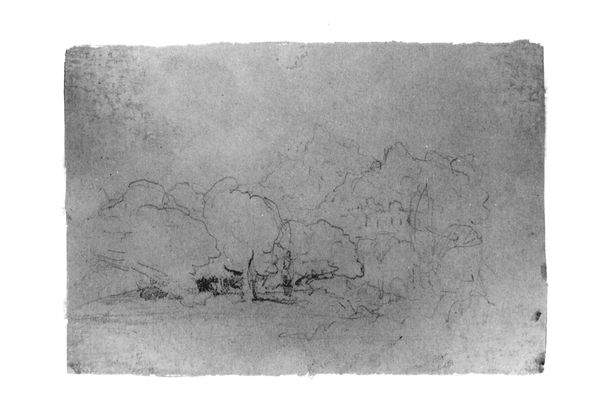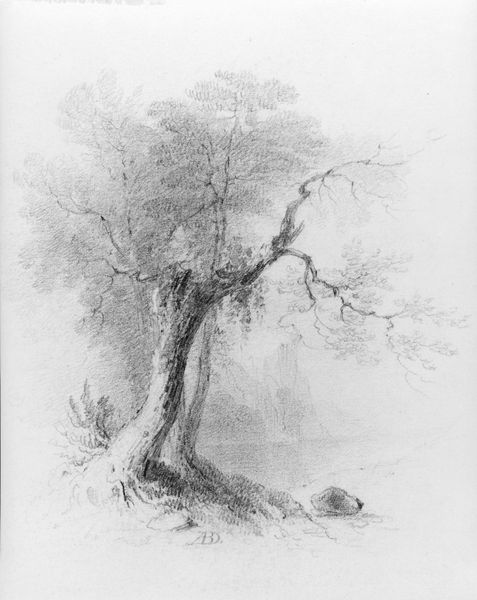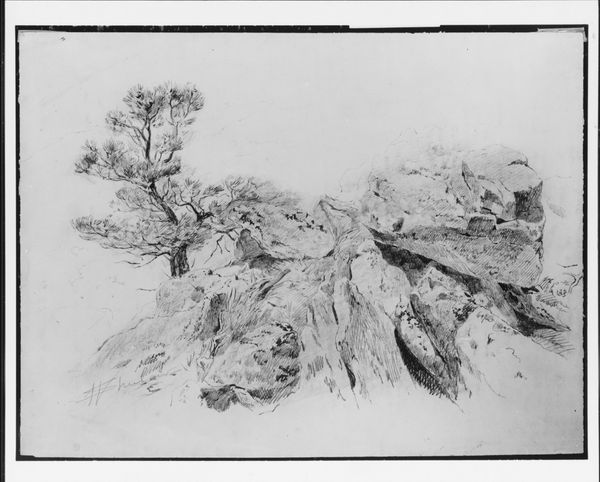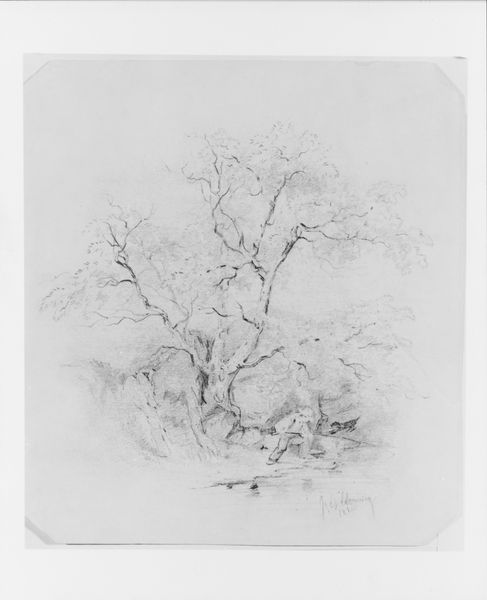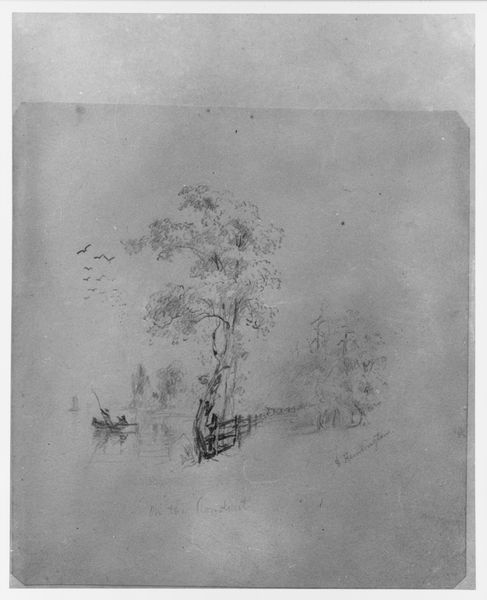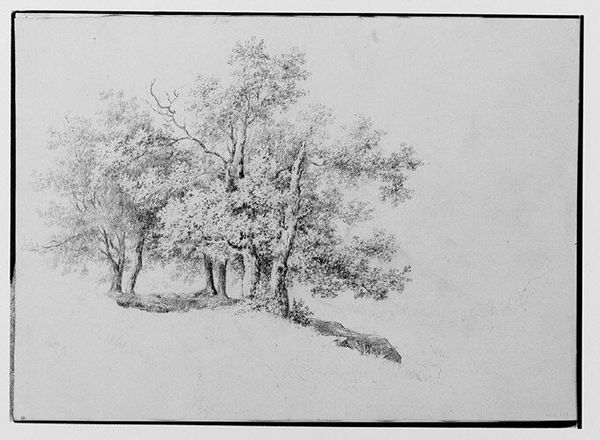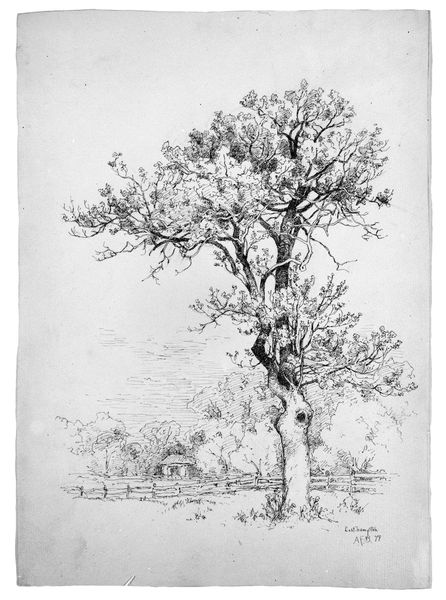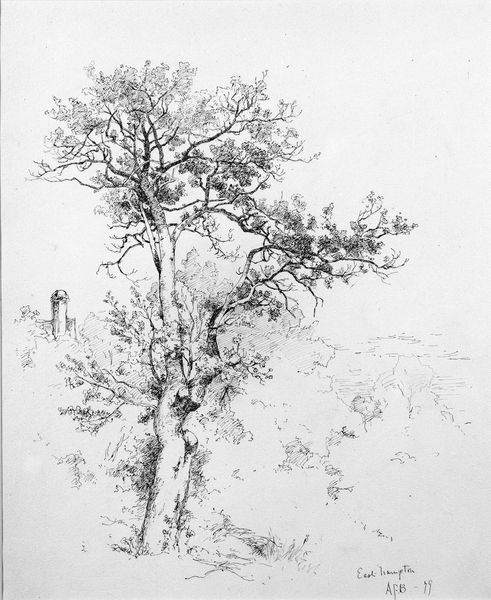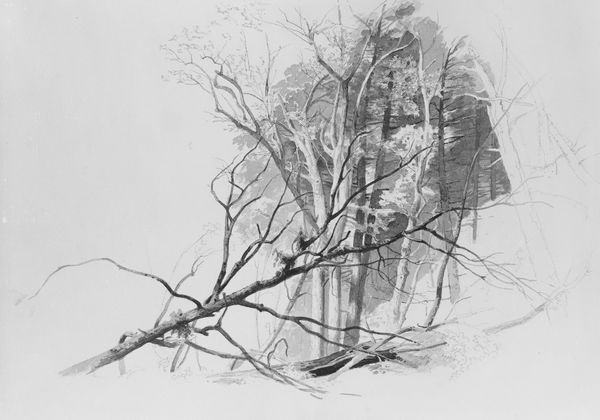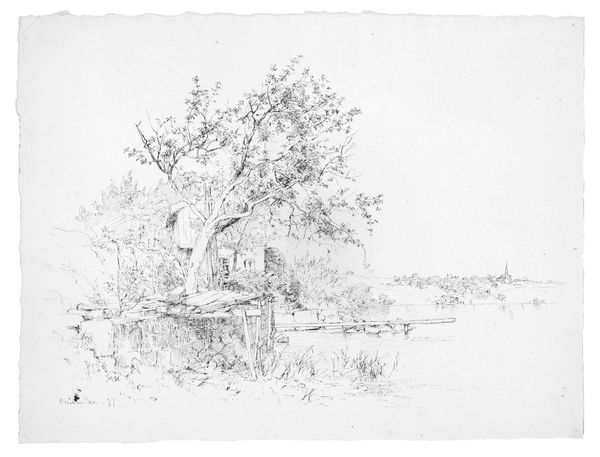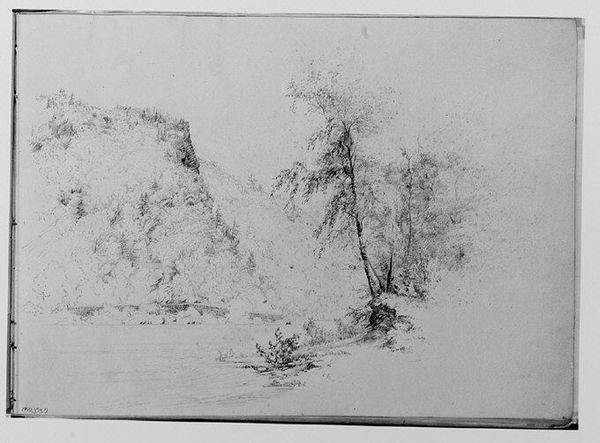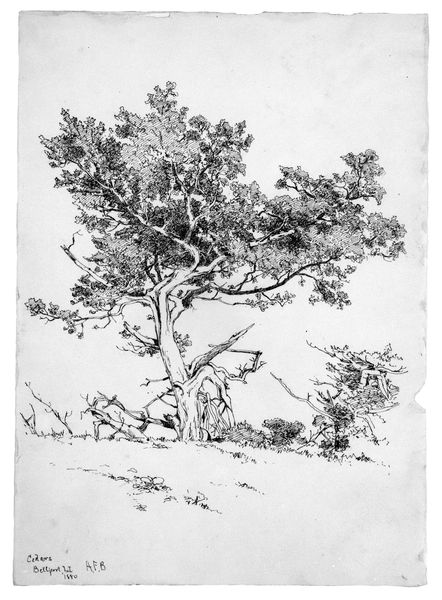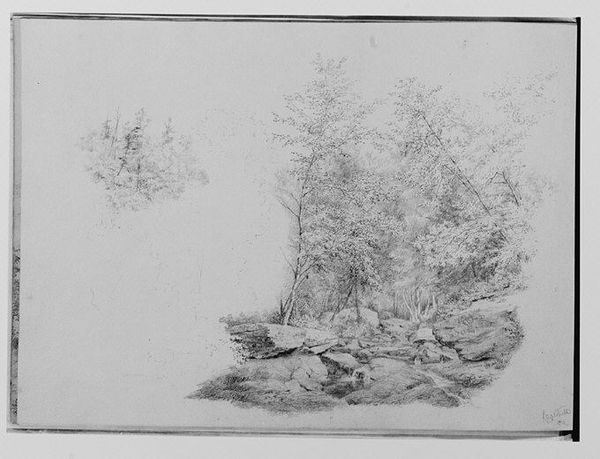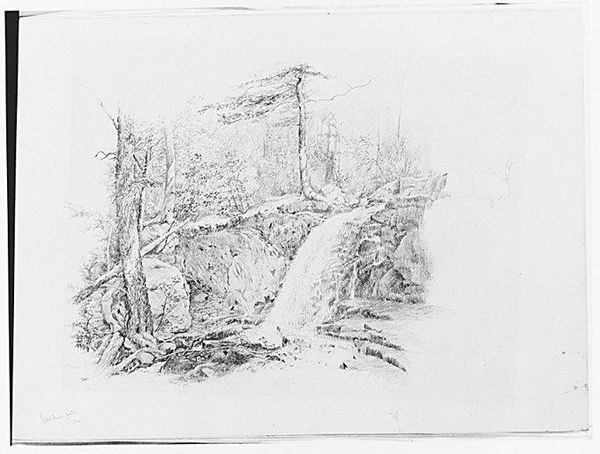
drawing, pencil
#
pencil drawn
#
drawing
#
pencil sketch
#
landscape
#
romanticism
#
pencil
#
realism
Dimensions: 7 5/16 x 6 3/16 in. (18.6 x 15.7 cm)
Copyright: Public Domain
Editor: This is "Landscape (from McGuire Scrapbook)," a pencil drawing by James Smillie from 1840, now at the Met. It feels both incredibly detailed and slightly haunting, like a memory half-forgotten. What do you see in this piece? Curator: I'm drawn to the lone tree, almost a character in itself. The bare branches reach out, seemingly yearning, and I wonder about the tree as a potent symbol in 1840s America. Trees often represented strength, endurance, and a connection to nature that was increasingly threatened by industrialization. Do you think that cultural anxiety is apparent here? Editor: That’s a great point! I hadn’t considered the industrial aspect. I was just seeing it as a nice landscape drawing, perhaps reflective of Romantic ideals of nature, a safe distance away from real life. Curator: Precisely. It’s a constructed wilderness. Look closely at the single standing form on the lower right. It seems placed intentionally to balance the large tree, adding an air of loneliness. Consider the cultural memory of ruins; could that be it? Editor: Now that you mention it, it does look like a stone form. That shifts my understanding. It's not just nature; it’s nature plus something else… time, maybe? Curator: Time, loss, reflection on the past, certainly. How do you feel knowing it was found in a scrapbook, filled with intimate memories and sentiments? Does that change how you see the visual language of this sketch? Editor: It does. Knowing that adds a personal layer, suggesting this landscape held some emotional significance for someone, like a visual memento. Curator: I agree. It’s as if Smillie captured not just a place, but also a feeling, embedding it within a network of personal memories. An emotionally charged icon, wouldn't you agree? Editor: Definitely. Seeing how it might tie into both broader cultural anxieties *and* personal sentiment really deepens my appreciation for what it represents. Thank you!
Comments
No comments
Be the first to comment and join the conversation on the ultimate creative platform.
